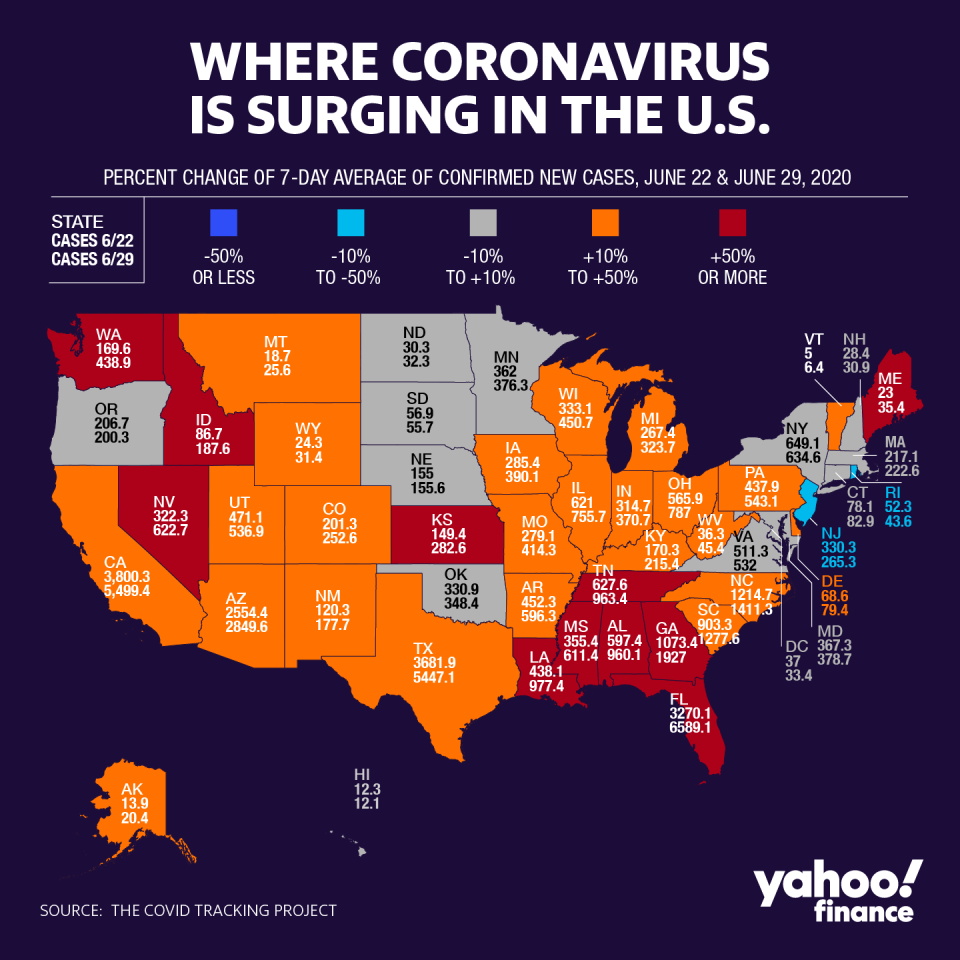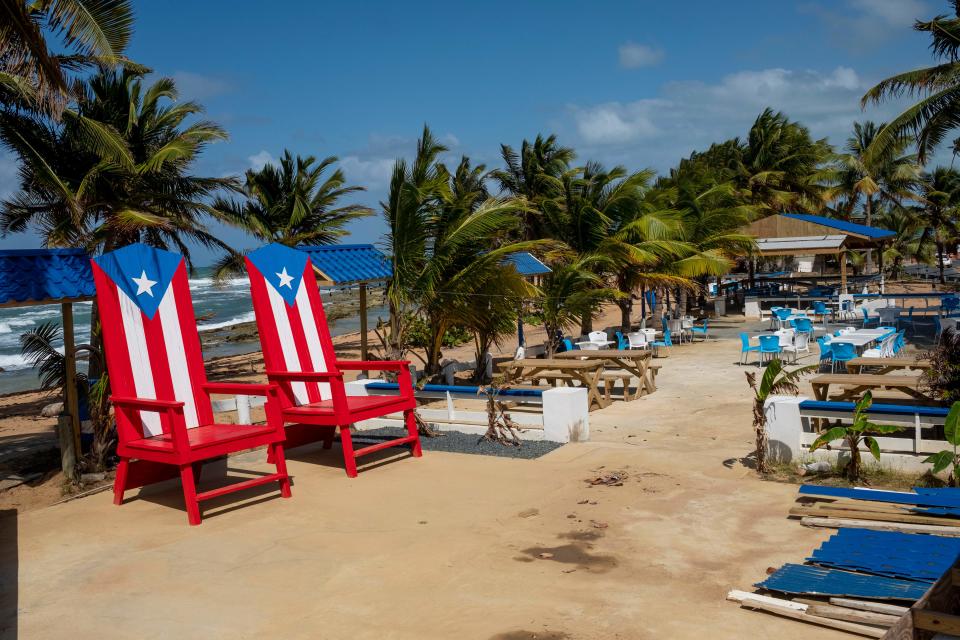Coronavirus travel restrictions are expanded for Americans
Days after New York, Connecticut, and New Jersey enacted a self-quarantine travel advisory for certain U.S. travelers, the measure has expanded as the confirmed COVID-19 cases surge across the country.
The European Union and Caribbean islands also introduced new travel measures that affect American tourists.
Read more: Coronavirus and travel: Here are the states where travelers must self-quarantine
Along with the governors of New Jersey and Connecticut, Gov. Andrew Cuomo (D-NY) announced on Tuesday that people from 16 states who visit their states will be required to self-quarantine for 14 days. That’s up from nine states when the governors first announced the tristate advisory on June 24.

The expanded list includes the following states: Alabama, Arkansas, Arizona, California, Florida, Georgia, Iowa, Idaho, Louisiana, Mississippi, North Carolina, Nevada, South Carolina, Tennessee, Texas, and Utah.
The tristate’s original advisory for a 14-day self-quarantine included visitors from Alabama, Arkansas, Arizona, Florida, South Carolina, North Carolina, Utah, Texas, and Washington.
Read more: Coronavirus and travel: What you need to know as states reopen

"As an increasing number of states around the country fight significant community spread, New York is taking action to maintain the precarious safety of its phased, data-driven reopening," Gov. Cuomo said in a press conference on Tuesday.
The travel advisory applies to people coming from states with active outbreak activity. Measured by “a positive test rate higher than 10 per 100,000 residents over a 7-day rolling average” or “a state with a 10% or higher positivity rate over a 7-day rolling average,” according to the governor.
Legal action against those who do not comply with the travel advisory and self-quarantine for 14-days will be subject to fines as high as $10,000, Gov. Cuomo said June 24.
If you're traveling to New York from the following states you must self-quarantine for 14 days.
The states are: AL, AR, AZ, CA, FL, GA, IA, ID, LA, MS, NC, NV, SC, TN, TX, UT.— Andrew Cuomo (@NYGovCuomo) June 30, 2020
Overseas travel restrictions
As restrictions in the United States are tightening, the European Union recommends that European nations should relax restrictions on visitors from certain countries starting July 1. But the U.S. is not among those.
The following countries have been deemed as stable or show a decreasing trend in active cases of COVID-19, per the European Union. Nineteen countries are included, but U.S. residents are absent from the list and do not qualify as “stable” as cases have been rising.
Africa
Algeria
Morocco
Rwanda
Tunisia
Asia
China, “subject to confirmation of reciprocity”
Georgia
Japan
South Korea
Thailand
Australia
Australia
New Zealand
Europe
Andorra
Monaco
Montenegro
San Marino
Serbia
Vatican
North America
Canada
South America
Uruguay

Caribbean economies heavily rely on tourism and hospitality and countries like Antigua, Aruba, Jamaica, St. Bart’s, St. Lucia, and U.S. Virgin Islands opened to certain visitors in June with more countries opening their borders to American visitors in July.
Bahamas - July 1
Aruba - July 10
Puerto Rico - July 15
Turks and Caicos - July 22
But all international visitors must provide a recent negative COVID-19 test — not an antibody test — to gain entry in the islands. Other travel requirements may include temperature screenings at airports, a personal health questionnaire, and travel medical insurance that includes emergency assistance and COVID-19 medical repatriation.
Stephanie is a reporter for Yahoo Money and Cashay, a new personal finance website. Follow her on Twitter @SJAsymkos.
Read more:
'Antidote to anxiety is control': The psychology behind the coronavirus panic buying
Coronavirus stimulus: Arizona Senator's $4,000 travel credit is 'one of the wackiest' ideas
Illegal Tender podcast: How 'MLM' schemes turn regular lives upside down
Follow Yahoo Finance on Twitter, Facebook, Instagram, Flipboard, SmartNews, LinkedIn, YouTube, and reddit.


